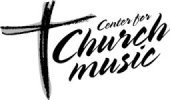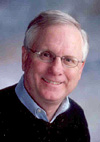Center For Church Music, Songs & Hymns

Recent articles
- Kids Choir Camp 2012: A Soldier of the Cross!
- Kids Choir Camp 2011
- Billy's Questions: Session 1
- How I Can Help
- The Song of the Cross
Great Hymns of the Faith CDs
Categories
- Church Musicians
- The Weight of Glory
- Be Prepared
- Singing Hymns
- Singing Lessons
- John Wesley on Singing
- Singing: A Call to Excellence
- Lay People
- Billy's Questions
- C.S. Lewis on Worship
- Kids Choir Camp
- A Song of Christmas
- Singing Hymns
- Knowing Christ
- Christmas Eve Truce
- Pastors
- Music
- Church Musician
- Worship
Our Author

Music & Worship
The Early Church: Singing Saints II
Psalm 23
The Christian Church was born in song. So says one of the giants of 20th century theology, Dr. Ralph Martin. As the parallel passages in Ephesians 5:18-20 and Colossians 3:16-17 indicate, "psalms and hymns and spiritual songs" were an integral part of the early church.
As we look back at this seminal stage of church history, it’s important to remember that the Jewish musical heritage of the early church was strong. From Genesis to Malachi, song is everywhere. The Psalms, which every young Jewish child, including Jesus, learned at an early age, were not meant to be read, but they were chanted or sung. So, it was natural for Christianity, which united Jews and Greeks (Gentiles) to continue music’s indispensable role in Christian worship.
As we look at the music of the early church, it’s clear that the way we view music has changed dramatically from those first four centuries. Today, musical preferences are based on an individual’s personal taste. But, the early church could not operate this way.
Because "singing the Word" was all-important to them, "choosing" was unthinkable. The exaltation of Christ—not a particular style or singer—was the only way open to them. As the church struggled to survive, everything in worship existed for edification and education. Christ was their focus; anything that interfered with "fixing their eyes" on Jesus was a distraction.
Although our twin texts also refer to "hymns and spiritual songs", the writings from this period clearly indicate that Psalms were most often sung in worship. One of the most important leaders of the early church and the father of church hymnody, Ambrose (c. 340-397), referred to Psalms as the "voice of the church." Not only were the Psalms a part of the Old Testament, the presence of Christ throughout the Psalms had now become clear to these focused saints.
Like the early church, it’s essential for today’s church to sing "the Word" and to make the singing of Psalms a vital part of the church’s song. There are many wonderful paraphrased Psalms (metrical psalms), that can be sung. Most people think of them as hymns rather than Psalms, but whatever you call them, the Psalms are meant to be sung. While the Psalms are often spoken in worship, they find their highest fulfillment when sung. I encourage you to go to our website and sing some Psalms with our choir. In the box to the right we have listed four hymns where the text of the hymn and the on which its based.
If your day does not include the singing of hymns, then this short list from our website will help to jumpstart the practice of singing a hymn each day. Remember, the singing of a Psalm will help to make your day "God centered, asking of God no gift more urgently than His presence, the gift of Himself, joyous to the highest degree and unmistakably real." (CS Lewis, Reflections On the Psalms)
